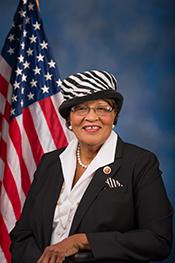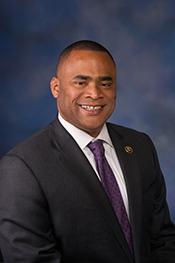0
0
0
Recognizing the significance of the Greensboro Four sit-in during Black History Month.
3/22/2024, 3:45 AM
Summary of Bill HRES 1035
Bill 118 HRES 1035, also known as the Greensboro Four sit-in resolution, is a piece of legislation that aims to recognize and honor the historical significance of the Greensboro Four sit-in during Black History Month. The Greensboro Four sit-in took place on February 1, 1960, when four African American college students from North Carolina A&T State University sat down at a segregated lunch counter in Greensboro, North Carolina, and refused to leave until they were served.
The resolution acknowledges the bravery and determination of the Greensboro Four – Franklin McCain, Joseph McNeil, Ezell Blair Jr., and David Richmond – in peacefully protesting against racial segregation and discrimination. It also highlights the impact of their actions in sparking a wave of sit-ins and protests across the country, leading to the desegregation of public facilities and the eventual passage of the Civil Rights Act of 1964.
Furthermore, the resolution emphasizes the importance of remembering and learning from the Greensboro Four sit-in as a pivotal moment in the struggle for civil rights and equality in the United States. It calls on all Americans to reflect on the sacrifices and contributions of African Americans throughout history, particularly during Black History Month. Overall, Bill 118 HRES 1035 serves as a tribute to the Greensboro Four and their role in the fight for racial justice, while also encouraging continued efforts to promote equality and inclusivity in society.
The resolution acknowledges the bravery and determination of the Greensboro Four – Franklin McCain, Joseph McNeil, Ezell Blair Jr., and David Richmond – in peacefully protesting against racial segregation and discrimination. It also highlights the impact of their actions in sparking a wave of sit-ins and protests across the country, leading to the desegregation of public facilities and the eventual passage of the Civil Rights Act of 1964.
Furthermore, the resolution emphasizes the importance of remembering and learning from the Greensboro Four sit-in as a pivotal moment in the struggle for civil rights and equality in the United States. It calls on all Americans to reflect on the sacrifices and contributions of African Americans throughout history, particularly during Black History Month. Overall, Bill 118 HRES 1035 serves as a tribute to the Greensboro Four and their role in the fight for racial justice, while also encouraging continued efforts to promote equality and inclusivity in society.
Congressional Summary of HRES 1035
This resolution recognizes (1) the Greensboro Four for their contributions to the civil rights movement and the significant role they played as a catalyst for the formation of the Student Non-Violent Coordinating Committee, (2) the value of ethnic and racial diversity in the United States, and (3) the continued importance of sit-ins as an effective form of nonviolent resistance. The resolution also encourages states to include information about the Greensboro Four in their educational curriculums.
Read the Full Bill
Current Status of Bill HRES 1035
Bill HRES 1035 is currently in the status of Bill Introduced since February 29, 2024. Bill HRES 1035 was introduced during Congress 118 and was introduced to the House on February 29, 2024. Bill HRES 1035's most recent activity was Referred to the Committee on Education and the Workforce, and in addition to the Committee on the Judiciary, for a period to be subsequently determined by the Speaker, in each case for consideration of such provisions as fall within the jurisdiction of the committee concerned. as of February 29, 2024
Bipartisan Support of Bill HRES 1035
Total Number of Sponsors
1Democrat Sponsors
1Republican Sponsors
0Unaffiliated Sponsors
0Total Number of Cosponsors
38Democrat Cosponsors
38Republican Cosponsors
0Unaffiliated Cosponsors
0Policy Area and Potential Impact of Bill HRES 1035
Primary Policy Focus
Civil Rights and Liberties, Minority IssuesAlternate Title(s) of Bill HRES 1035
Recognizing the significance of the Greensboro Four sit-in during Black History Month.
Recognizing the significance of the Greensboro Four sit-in during Black History Month.
Comments
Sponsors and Cosponsors of HRES 1035
Latest Bills
Providing for congressional disapproval under chapter 8 of title 5, United States Code, of the rule submitted by the Bureau of Land Management relating to "Central Yukon Record of Decision and Approved Resource Management Plan".
Bill HJRES 106December 12, 2025
Providing for congressional disapproval under chapter 8 of title 5, United States Code, of the rule submitted by the Bureau of Land Management relating to "North Dakota Field Office Record of Decision and Approved Resource Management Plan".
Bill HJRES 105December 12, 2025
Holocaust Expropriated Art Recovery Act of 2025
Bill S 1884December 12, 2025
Providing for congressional disapproval under chapter 8 of title 5, United States Code, of the rule submitted by the Bureau of Land Management relating to "Miles City Field Office Record of Decision and Approved Resource Management Plan Amendment".
Bill HJRES 104December 12, 2025
Enduring Justice for Victims of Trafficking Act
Bill S 2584December 12, 2025
National Defense Authorization Act for Fiscal Year 2026
Bill S 1071December 12, 2025
Technical Corrections to the Northwestern New Mexico Rural Water Projects Act, Taos Pueblo Indian Water Rights Settlement Act, and Aamodt Litigation Settlement Act
Bill S 640December 12, 2025
Department of Defense Appropriations Act, 2026
Bill HR 4016December 12, 2025
End the Fed’s Big Bank Bailout Act
Bill S 2113December 12, 2025
Federal Reserve Transparency Act of 2025
Bill S 2327December 12, 2025
Recognizing the significance of the Greensboro Four sit-in during Black History Month.
Bill HRES 88March 13, 2024





